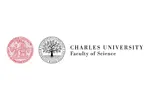

Czech Republic (the)
Visit course webpageProject summary
UAVs and airplanes currently provide imagery with very high/super high spatial resolution. These data sources are increasingly being utilized for detailed vegetation studies in nature conservation, agriculture, forestry and other research areas. Pre-processing and analyzing the data is challenging at this spatial level, especially when dealing with change detection analysis. It involves addressing multiple sources of errors, noise, and inaccuracies. In relation to recent studies conducted by the TILPEC research team, which focus on the detection, change detection, and health status evaluation of primarily natural but also cultivated vegetation, the proposed PhD project should aim to improve vegetation classification/change detection accuracy by testing various machine learning/deep learning methods. The methods will be tested based on case studies for different habitats/types of vegetation - peat-bogs of relict arctic-alpine tundra, grasslands, meadows with invasive species or others.
Various machine learning/deep learning approaches should be tested and compared to achieve very high detection/change detection accuracy (over 90 %) for individual species or even individuals of selected species. The PhD project leads to the proposal of a final, highly accurate processing chain, taking into account various factors such as the quantity/spatial distribution of training/validation data, variable illumination during data acquisition, influence of terrain, number of species within the habitat, species composition and density/abundance etc.
Applicant should have advanced knowledge in remote sensing and should be ready to work in the field. Experience with machine learning and deep learning methods and publications demonstrating this experience are an advantage and will be considered in the selection process.
Research group
Research Team of Image and Laboratory Spectroscopy (TILSPEC)
Learn more about Detection and change detection of vegetation at the species/individual level using UAV/aerial imagery and machine learning/deep learning methods, PhD - at Faculty of Science, Charles University
Visit course webpageContact Faculty of Science, Charles University to find course entry requirements.
This text facilitates quick navigation of the various types of scholarships but does not provide a full list of rules and policies regulating this field. The granting and payments of scholarships is governed primarily by the Scholarships and Bursaries Rules of Charles University (cuni.cz/UKEN-727.html), the Rules for Granting Scholarships at FSc, and the relevant measures issued by the Dean (natur.cuni.cz/fakulta/studium/bc-nmgr/predpisy-a-poplatky/stipendia; Czech only).
Students may obtain the following scholarships:
Certain scholarships are granted to students automatically (without student applications), whereas others are granted further to an application (electronic or paper, depending on the type of scholarship). Bursaries are neither taxed nor included in stated income. You can find answers to frequently asked questions regarding scholarships on the Faculty website (natur.cuni.cz/fakulta/studium/helpdesk/faq-stipendia; Czech only).
For more information check our dedicated website.
There are 136 other courses listed from Faculty of Science, Charles University. A selection of these are displayed below:
A postdoctoral position to study thermal effects in landslides Postdoc
Faculty of Science, Charles University
Find out moreActivation of STING signaling in tumors associated with human papillomaviruses PhD
Faculty of Science, Charles University
Find out moreAdvanced Electron Microscopy Techniques for the Characterization of Tunable Zeolitic Architectures PhD
Faculty of Science, Charles University
Find out moreAmphiphilic Peptidomimetics Containing Metallacarboranes as a Design Strategy for Future Antibiotics PhD
Faculty of Science, Charles University
Find out moreSee other universities in Prague
Find out more about studying in Czech Republic (the)